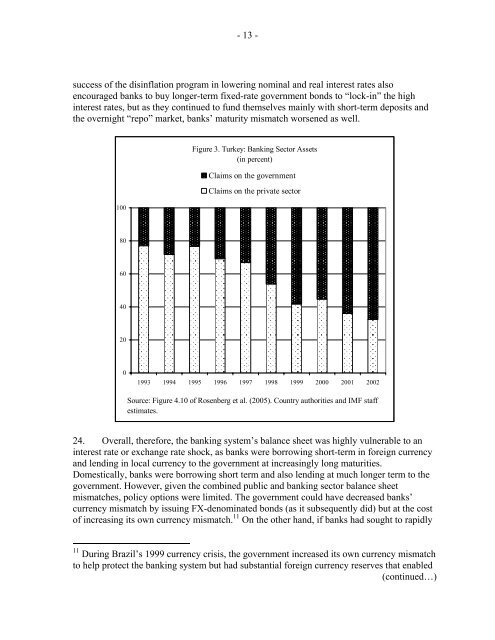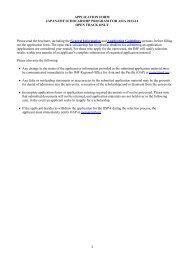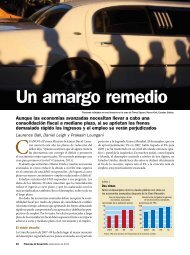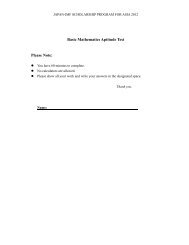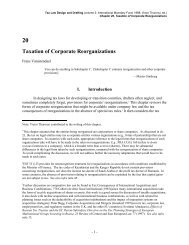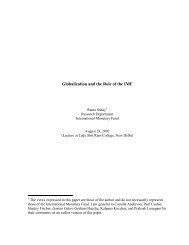Overview of Capital Account Crisis - IMF
Overview of Capital Account Crisis - IMF
Overview of Capital Account Crisis - IMF
You also want an ePaper? Increase the reach of your titles
YUMPU automatically turns print PDFs into web optimized ePapers that Google loves.
- 13 -<br />
success <strong>of</strong> the disinflation program in lowering nominal and real interest rates also<br />
encouraged banks to buy longer-term fixed-rate government bonds to “lock-in” the high<br />
interest rates, but as they continued to fund themselves mainly with short-term deposits and<br />
the overnight “repo” market, banks’ maturity mismatch worsened as well.<br />
100<br />
Figure 3. Turkey: Banking Sector Assets<br />
(in percent)<br />
Claims on the government<br />
Claims on the private sector<br />
80<br />
60<br />
40<br />
20<br />
0<br />
1993 1994 1995 1996 1997 1998 1999 2000 2001 2002<br />
Source: Figure 4.10 <strong>of</strong> Rosenberg et al. (2005). Country authorities and <strong>IMF</strong> staff<br />
estimates.<br />
24. Overall, therefore, the banking system’s balance sheet was highly vulnerable to an<br />
interest rate or exchange rate shock, as banks were borrowing short-term in foreign currency<br />
and lending in local currency to the government at increasingly long maturities.<br />
Domestically, banks were borrowing short term and also lending at much longer term to the<br />
government. However, given the combined public and banking sector balance sheet<br />
mismatches, policy options were limited. The government could have decreased banks’<br />
currency mismatch by issuing FX-denominated bonds (as it subsequently did) but at the cost<br />
<strong>of</strong> increasing its own currency mismatch. 11 On the other hand, if banks had sought to rapidly<br />
11 During Brazil’s 1999 currency crisis, the government increased its own currency mismatch<br />
to help protect the banking system but had substantial foreign currency reserves that enabled<br />
(continued…)


